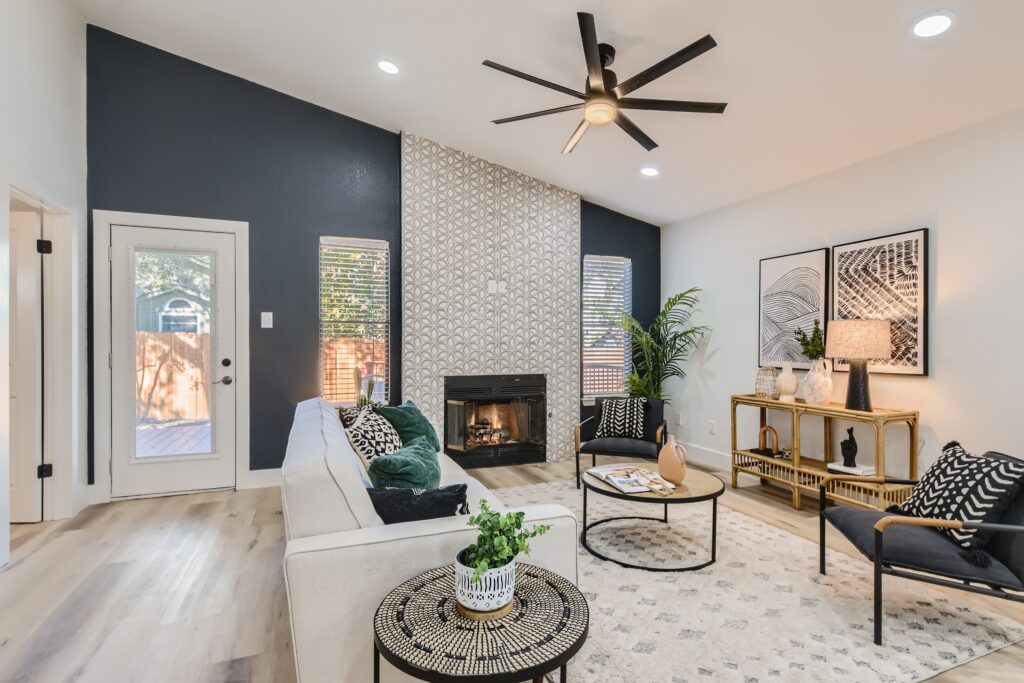The COVID-19 pandemic has affected every business in some way. Real estate agents, which usually rely on face-to-face interactions, had to adapt and use technology and creativity to conduct virtual showings.
These virtual property showings proved convenient and time-saving and are now popular for agents, rental property managers, and enterprise businesses. In this post, we’ll review what a virtual showing is and the pros and cons of hosting one.
What is a virtual showing in real estate?
In real estate, a virtual showing uses live video and chat technology to communicate with potential buyers and show them properties. Popular methods include using Zoom, Instagram Live, or Facebook Live to show the home and interact with your target audience.
Why do agents host virtual property showings?
Virtual property showings were a must at the height of the pandemic, but now they remain common out of convenience.
The listing agent can show it to anyone worldwide with a click of a button.
The buyer can then ask questions and decide if the property is a match for them. They may choose to close the deal, or the virtual showing may be an important step in the buying process.
As most home buyers now engage with homes online first, it’s a great way to entice clients to see the property in person.
What are the pros and cons of a virtual showing?
Pros:
1. Stay safe
While most people now choose to stay home if they are sick, a virtual showing may be the safest choice for buyers and sellers. As winter approaches, the cold and flu season will be in full swing, and weather conditions can become unpredictable. A virtual showing can help retain viewers regardless of circumstances.
2. Save time
Virtual showings save the buyer travel time, making it easier for agents to schedule showings.
Instead of travelling back and forth to the property for multiple showings, you can plan blocks of time for interested buyers to join.
You can also save time by following up with virtual staging to give the clients ideas of how the space can look with specific types of furniture, especially if the home is already empty.
3. Reach a wider audience
Whether the buyer lives a few minutes or a few hours away, meeting with them for a virtual showing takes the same amount of time and effort.
Additionally, virtual showings are more accessible to a wider range of people. For example, if a client wants their family member or friend to see the property and weigh in on the decision, you can easily send more people the showing link.
Cons:
1. Connectivity issues
While virtual showings are convenient, network connectivity issues can cause problems. If you or your client is facing technological difficulties during the showing, you’ll miss an opportunity for a sale.
Be sure to have options like photographs and 3D tours available that you can email later.
Also, test your connection before the actual showing to ensure everything works properly.
2. Success depends on a strong online presence
You need to establish a strong online presence with a solid brand to book a virtual showing.
You can use digital marketing strategies such as a well-built website and email and social media campaigns to keep your online presence strong and connect with home buyers who are comfortable doing things online.
Make your virtual showing pop with Virtuance
To further enhance a virtual showing, consider adding 3D virtual tours and our professional real estate photography services to make your properties stand out.
And since every order comes with a single listing website and access to our Marketing Suite, you’ll have the tools to successfully sell your listings virtually.
FAQ
Every agent has their own style and strategies, but current trends show that having a virtual showing boosts income for real estate agents.
No. Virtual property showings are a live video option completed with an agent at the property. Anyone at any time can complete a virtual tour through a website, as virtual tours are not in real-time.








